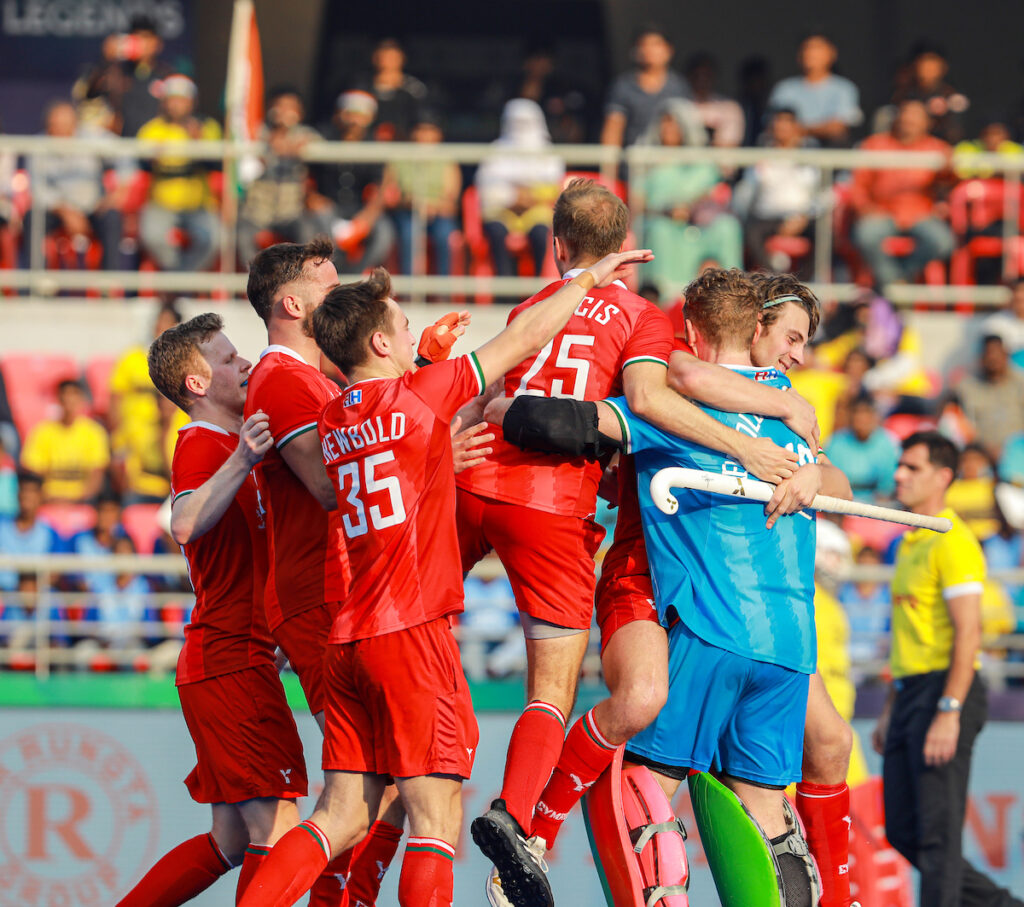Coach Andreu Enrich has published his second hockey book ’50 tips from intelligent players’. Here he introduces the publication and outlines confidence building
As a hockey player, you constantly confront challenges and opportunities that demand the application of your game intelligence. You must remain aware of your surroundings, collaborate effectively with teammates, foresee your opponents’ actions, create open space, exploit gaps, solve motor problems, and much more. Adaptability to changing conditions and scenarios is key, as is the ability to learn from both mistakes and successes.
It’s important to note that game intelligence isn’t an inherent trait or something you can absorb directly from a book. Rather, it’s an ability that develops through practice, observation, feedback, and reflection.
This dynamic and multifaceted process encompasses cognitive, emotional, social, and motor skills. Intelligence in the game (and not about the game!), in this context, refers to your capacity to perceive and enact effective moves in each situation, in relation to the ball, harmonizing with your teammates while considering the opposition.
These tips draw from my personal journey, beginning as a player and evolving into a coach across various countries and competitive levels. They’re insights I’ve gathered firsthand and observed in the most intelligent players I’ve encountered on the pitch. Take these 50 tips as suggestions that you can adapt to your unique style and circumstances.
Consider this book a toolbox designed to assist you. It’s not a rigid manual or cookbook; rather, it’s a collection of ideas intended to inspire and challenge you.
Each tip is introduced briefly, followed by a practical application in the context of our sport, concluding with the formulation of the tip itself. Some tips are broad, applicable to any position on the field, while others are more specific and relevant to particular roles or game phases.
This isn’t a linear narrative, it’s an arsenal of ideas waiting for your exploration. There’s no set sequence to adhere to. Instead, let your curiosity be your guide. Use these tips as prompts for your personal experiences, testing their practicality for yourself. Ideally, this exploration will lead you to develop your own innovative tips!
I hope that by reading this book, you will not only learn some useful tips, but also discover some new ways of thinking about the game, and about yourself as a player. I wish to help you in the development of your game intelligence and, most importantly, in your capacity to enjoy our beloved sport.

Build your Confidence Level
During the game, nothing is worse than hesitation. Losing confidence and doubting your actions create a breach in the flow of the game, allowing thoughts to intrude and disconnecting you from the present. Why do we fall into this trap?
The reason is our perception of mistakes. For most players, a mistake is seen as a failure, a moment of public exposure and scrutiny that brings the feeling of being guilty. However, mistakes are an inherent part of the game, making it attractive due to its unpredictability and complexity beyond mere sequences of mechanics.
If you feel like your confidence level is inconsistent and fragile, what should you do? Be intelligent and deliberately work on building your confidence level. You will achieve this recovery by managing risks effectively.
If you have lost two balls in a row and feel your confidence diminishing, ensure that your next action does not further punish your level. Even a low-risk and seemingly neutral action, such as receiving and passing the ball back, can begin to change the dynamic and build your confidence again.
Gradually build your confidence by progressively increasing the risks, ensuring that you have some “not bad” actions before taking on greater challenges. Managing successful and unsuccessful actions will keep you engaged in the game.
Another way to build your confidence level is to connect with your teammates through verbal communication. In moments of doubt, you may have the tendency to withdraw and become more silent, preoccupied with your internal thoughts.
Verbal instructions require focus, which shifts your attention outward into the game. By communicating basic instructions (right, left, go, stay, mine, yours, etc.) or providing basic support (well done, come on, etc.) to your teammates, you will return to the flow of the game, a fundamental condition for effective play.
Over time and with experience, you will notice that your confidence level becomes more and more constant. Intelligent players understand that mistakes don’t define certain aspects of their being; they are merely accidental occurrences that fade away quickly. These players are always ready to face the next game challenge with equal readiness. They manage risks not to regain confidence but in line with the requirements of the game. You will reach that point!
Lastly, I want to emphasise the importance of the others in this process, including teammates and coaches. When you notice someone losing confidence during the game (body language never lies!), it is crucial not to start pushing that player after the last mistake but rather reinforcing them after their first good action. After a mistake, it is often best to leave the player alone, as further “exposure” (being the center of attention) can be counterproductive.
If you want to build your confidence level, start by playing conservatively and gradually take more risks. Engage in verbal communication with your teammates. And finally, it would be great if your team can also provide appropriate support to you.




